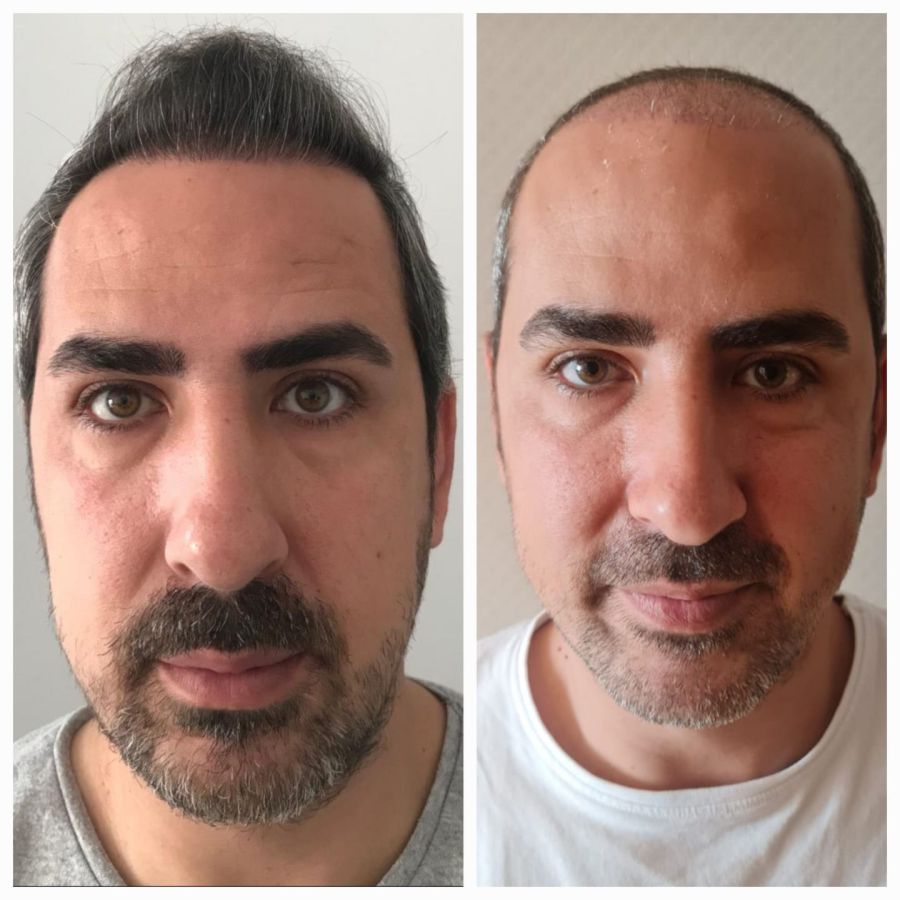WHAT IS HAIR TRANSPLANTATION?
Hair transplantation is a natural and permanent solution to the problem of thinning and balding resulting from hair loss. In the hair transplantation procedure, genetically resistant hair follicles from the patient's nape area are collected and transplanted into channels opened in the bald or thinning areas. Hair transplantation is a micro-surgical operation performed under local anesthesia, and thus should be carried out in a hospital environment with the presence of an anesthesia doctor.
Who is Suitable for Hair Transplantation?
Candidates for hair transplantation are evaluated based on their medical history and examinations to determine the feasibility of the procedure. Individuals suitable for hair transplantation may include:
• Those experiencing hair loss due to genetic or hormonal factors.
• Individuals who have previously had hair transplantation but were not satisfied with the results.
• Those with insufficient hair density or sparse hair.
• Individuals who cannot devote enough time to hair care and treatments.
• Those experiencing hair loss or thinning due to various health issues.
• Non-pregnant individuals.
• Those without heart conditions or chronic illnesses.
Am I a Suitable Candidate for Hair Transplantation?
To determine if you are a suitable candidate for hair transplantation, a detailed examination by a hair transplantation specialist is necessary. Generally, suitable candidates for hair transplantation should meet the following criteria:
• Ideal candidates are those with hair loss or baldness. The extent of hair loss can affect suitability for hair transplantation.
• The hair follicles and scalp of the person undergoing hair transplantation should be healthy. Hair follicles should be suitable for new hair growth after transplantation.
• Since hair transplantation is a surgical procedure, candidates should be in good overall health. Chronic health issues or serious medical problems may make hair transplantation risky.
• Hair transplantation is usually preferred after the hair loss problem has been completely resolved. Therefore, determining the most suitable time based on the candidate's age and the progression of hair loss is important.
• The hair follicles used for transplantation are generally taken from a healthy hair area known as the donor area. It is important that the donor area can provide sufficient hair follicles.
Hair transplantation is a natural and permanent solution to the problem of thinning and balding resulting from hair loss. In the hair transplantation procedure, genetically resistant hair follicles from the patient's nape area are collected and transplanted into channels opened in the bald or thinning areas. Hair transplantation is a micro-surgical operation performed under local anesthesia, and thus should be carried out in a hospital environment with the presence of an anesthesia doctor.
Who is Suitable for Hair Transplantation?
Candidates for hair transplantation are evaluated based on their medical history and examinations to determine the feasibility of the procedure. Individuals suitable for hair transplantation may include:
• Those experiencing hair loss due to genetic or hormonal factors.
• Individuals who have previously had hair transplantation but were not satisfied with the results.
• Those with insufficient hair density or sparse hair.
• Individuals who cannot devote enough time to hair care and treatments.
• Those experiencing hair loss or thinning due to various health issues.
• Non-pregnant individuals.
• Those without heart conditions or chronic illnesses.
Am I a Suitable Candidate for Hair Transplantation?
To determine if you are a suitable candidate for hair transplantation, a detailed examination by a hair transplantation specialist is necessary. Generally, suitable candidates for hair transplantation should meet the following criteria:
• Ideal candidates are those with hair loss or baldness. The extent of hair loss can affect suitability for hair transplantation.
• The hair follicles and scalp of the person undergoing hair transplantation should be healthy. Hair follicles should be suitable for new hair growth after transplantation.
• Since hair transplantation is a surgical procedure, candidates should be in good overall health. Chronic health issues or serious medical problems may make hair transplantation risky.
• Hair transplantation is usually preferred after the hair loss problem has been completely resolved. Therefore, determining the most suitable time based on the candidate's age and the progression of hair loss is important.
• The hair follicles used for transplantation are generally taken from a healthy hair area known as the donor area. It is important that the donor area can provide sufficient hair follicles.



